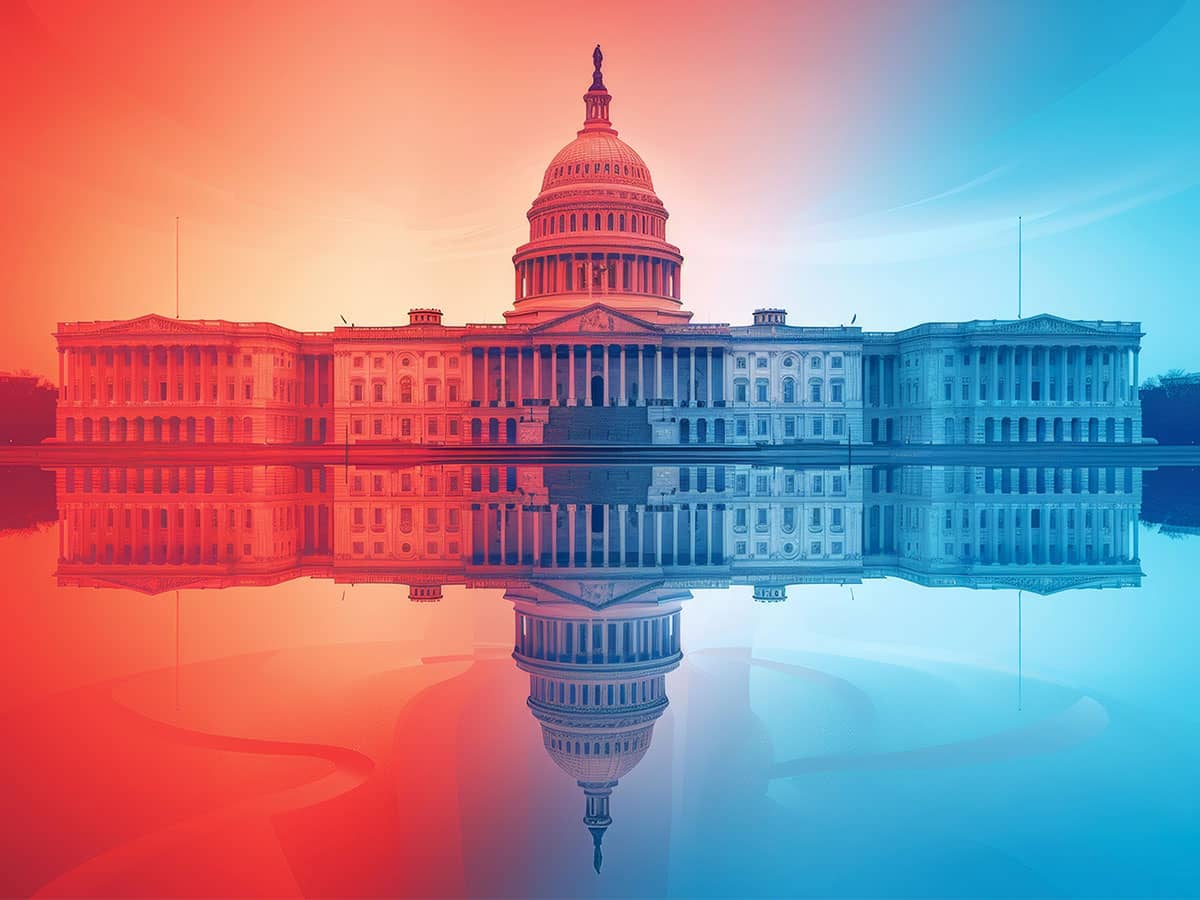As usual, the real power was the power behind the scenes, and in this instance, it was big business. Judge John Roberts, who litigated for large commercial clients as an attorney in private practice at the law firm Hogan & Hartson for a number of years, is a Washington Republican insider par excellence. He was the prime choice of business interests and their advocate, Bush confidante C. Boyden Gray, who heads the conservative Committee for Justice.
On religion issues, it is very hard to tell how Judge Roberts might rule, should he be confirmed to sit on the Supreme Court. He has been a federal judge for a short time, so there is no trail of decisions. Therefore, the only significant record of his work comes from his tenure as special assistant to the U.S. attorney general and associate counsel to the president in the White House Counsel's Office, both during the Reagan administration; his times as deputy solicitor general in the Justice Dept. under the first President Bush; and from his time in private practice.
But it appears that he may well be in the Rehnquist mold: no fan of the separation of church and state, but a believer that there is no First-Amendment defense to illegal conduct in the name of religion.
Roberts was on the brief in Lee v. Weisman, when the federal government argued that schools should be permitted to sponsor prayers during graduation ceremonies (an argument the Supreme Court rejected in its ruling on the case). He was counsel to President Reagan when the administration took the position in Wallace v. Jaffree that prayer in public schools should be permissible (another loss for the Reagan administration).
In a 2000 religious accommodation case (Ehlers-Renzi v. Connelly School Of The Holy Child, Incorporated), Roberts handled while in private practice, he represented a Catholic school against private homeowners. The homeowners challenged the county rule that exempted religious schools from having to obtain a special exemption to make alterations on their buildings. The appellate court held that the exemption was a permissible accommodation of religion, and therefore neighbors' concerns could be ignored when the entity doing the construction was religious.
This is a position that might spark some questioning from Senators enraged at the Supreme Court's recent Kelo decision, which held that local governments may use their eminent domain power to displace private homeowners for commercial projects. To the extent that Kelo ignited interest in the rights of local homeowners against government imposition, this case is another example of how the individual homeowner is under attack in the United States.
It may also open the door for the many neighborhoods that are struggling under the burden of the Religious Land Use and Institutionalized Persons Act, to complain loudly. RLUIPA has given large religious projects the green light to impose their intense uses on residential neighborhoods, regardless of the residential quality of the neighborhood.
On the question of the free exercise of religion, he may well be very close to his former boss, then-Justice Rehnquist, in believing that the rule of law applies equally to religious entities' conduct as it applies to others, which is the rule I defend at some length in my recently published book, "God vs. the Gavel: Religion and the Rule of Law." While Roberts was Rehnquist's clerk, Rehnquist dissented in Thomas v. Review Bd. of Ind. Employment Sec. Div., and reasoned that the court had been interpreting the Free Exercise Clause too broadly. Incidental burdens on religious conduct from neutral,
generally applicable laws were not unconstitutional, in Rehnquist's view.
Read more >>
| _Related Features | |
|
|
 |
Roberts was in the Solicitor General's Office when the court decided Employment Division v. Smith--which held that Oregon's drug laws applied to state-paid drug counselors who used peyote as part of religious services-and re-affirmed the principle that there is no religious defense to generally applicable, neutral laws governing conduct. Chief Justice Rehnquist was in the majority in that decision.
Each of these decisions is remarkable, because the Supreme Court made it clear that while the Free Exercise Clause did not mandate accommodation, legislative accommodation could be permissible. In the military headgear and peyote decisions, Congress followed with just such a legislative accommodation. Thus, the court took the position that the First Amendment's Free Exercise Clause did not direct courts to carve out exemptions from neutral, generally applicable laws. Rather, courts should leave the lawmaking to the legislatures. Judge Roberts would cement the majority on the court that takes this view. On this score, Judge Roberts will be a dramatically different justice than fellow short-lister Judge Michael McConnell--who made his career advocating mandatory judicial accommodation for religious conduct--would have been.
Those Republicans advocating against "activist judges" and in favor of legislative lawmaking will find such a view consistent with their worldview, as do Chief Justice Rehnquist and Justices Stevens, Scalia, Kennedy, and Thomas.
But, in the end, none of the positions discussed here can fairly be attributed to him personally. They were all positions he took on behalf of clients. The record is remarkably free of his personal views. For that reason, he may be the stealth candidate of all time, which means no one can reliably predict the future with this particular candidate.

